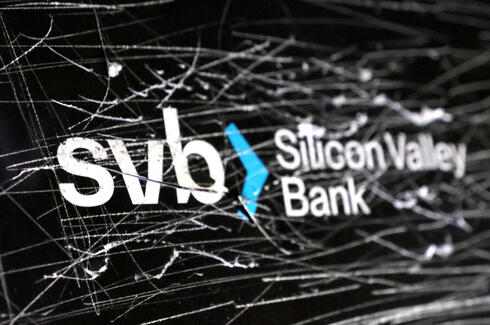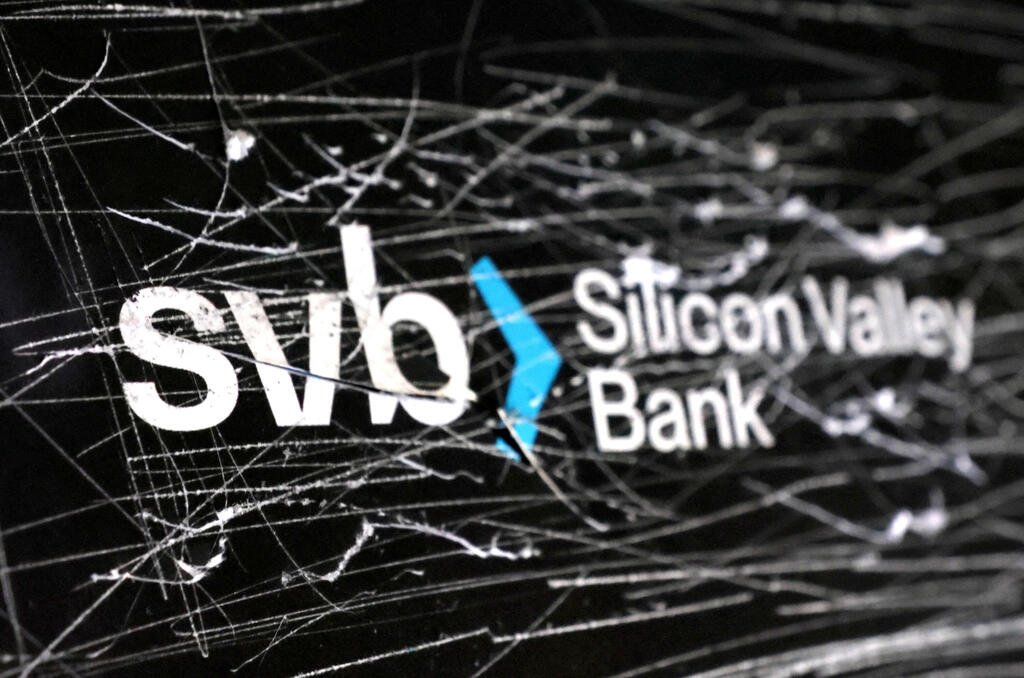
Reality bites: VC flaws exposed yet again in SVB collapse
A venture capital fund is not only a financial investor, it is also supposed to accompany the entrepreneur and hold their hand, especially of the young and inexperienced among them. But every time reality reveals the fact that VC funds only like risks they are familiar with and that are backed by other people's money
Venture capital funds, especially the Israeli ones, have boasted in recent days that they urged their portfolio companies to withdraw their money from the failing Silicon Valley Bank. Their urging in effect helped create the snowball that led to the collapse and ultimate bailout by the U.S. government.
In their behavior over the weekend, the funds once again proved that they are a herd. After all, these were exactly the same funds that sent all their companies to one bank, SVB, almost until the very day of its collapse. It was a relationship that worked for the benefit of the funds and also for the benefit of the bank - which gave generous terms for credit lines to those funds and, among other things, wealth management services and other generous services for partners in the funds.
There has long been a feeling that, contrary to the image they try to cultivate in the industry, there is no extraordinary concentration of geniuses in VC. This was well demonstrated in the last three years which have been a roller coaster in high-tech. 2019 was excellent, the first half of 2020 was a depression, the second half of 2020 was mania, and 2021 was amazing. At first, everyone still tried to behave with restraint, but they entered into a common hysteria at the outbreak of the coronavirus and in 2021 they competed among themselves who would be more optimistic and utopian. Everyone made inflated investments, and there was almost no one who tried to shout "the king is naked".
In 2022, with the cooling that came at the same time as the increase in interest rates, everyone continued to maintain the binding bond of silence. Because just as no one wanted to be the last to exit SVB, no one also wanted to be the first to acknowledge the fact that the value levels at which most of the 2021 investments were made did not make sense. And then the herd of funds also convinced the portfolio companies that they must lay off employees immediately, less than a year after telling the entrepreneurs that they must recruit everyone who knows how to write a line of code - as soon as possible.
Why were there so many deposits of high-tech companies in one bank? Among other things, because this bank gave low-interest loans to companies that agreed to transfer all their fundraising funds to an account there. The funds urged startups to take loans and credit lines in 2022, even though financially it is not the smartest move, certainly not for all companies. But this was the financially smart move for the funds, because that way they avoided going through a new investment round at a lower value. This allowed them not to acknowledge the loss in the reports they send to the institutional entities that invest in them, thus not jeopardizing their management fees and success fees. Because who loves risk less than venture capital funds?
What could the VC funds have done differently? They could have come with a greater spirit of volunteering to help after they took out the money from the bank together with the companies. The most generous funds offered their entrepreneurs bridging loans so that they could pay salaries to employees when it was not clear whether access to the bank accounts would be possible. But wait, if you believe in the company and are not interested in closing it, why not simply help it? A loan is good, but an attentive parent, as the funds try to portray themselves when they court the entrepreneurs, would give a grant that will be returned when the storm subsides. In the end, most of the funds were not ready to risk even one more dollar, possibly even at the price of closing companies, including some that in the future might become great successes.
It's hard to escape the feeling that, as usual, the funds expected someone else's money to fix the situation, as indeed happened when the government announced it would step in. What is this feeling based on? On a joint announcement by a large group of funds that came out on the night between Friday and Saturday, that they would be happy to continue working with the bank if and when someone buys it. Of course, someone else should risk their money, because they are venture capital funds only for risks they like.
The official responsibility for money and credit management rests with the entrepreneurs who often serve as CEOs of companies, but it should be remembered that even on this level, high-tech has some unique characteristics. Not all companies have a CFO, certainly not those that are in more initial stages. As evidence, it is precisely the younger companies that concentrated almost all of their money in SVB. This is of course also related to the fact that they are not of interest to the big banks and that they have less money, but not only.
A venture capital fund is not only a financial investor, it is also supposed to accompany the entrepreneur and hold their hand, especially of the young and inexperienced among them. But every time, reality reveals the simple fact that VC funds only like the risk they are familiar with, and one that is based on other people's money, meaning they aim that out of 10 companies in which they invest, one will be very successful, two or three will be fine, and all of these will compensate for the companies that fail. Often, one really good company can cover a return of an entire fund. What the funds really hate are all the other risks, the kind that they are required to cover with their own money if they materialize.















